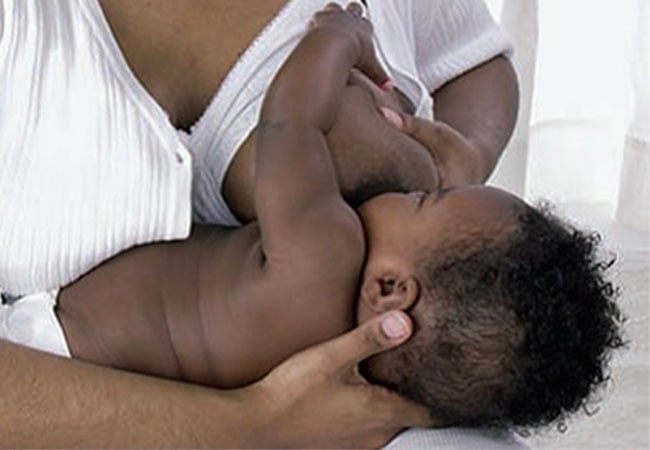
By Agency
The Director, Disease Control and Immunisation, Sokoto State, Dr Bilyaminu Yari-Sifawa, says exclusive breast feeding remains the best immunity against killer diseases for children from zero to six months.
He disclosed this while speaking during a tw-day Media Dialogue on Routine Immunisation and Zero Dose Reduction Campaign on Saturday in Sokoto.
The programme was organised by the United Nations Children’s Fund in collaboration with the Primary Health Care Development Agencies of Kebbi, Sokoto and Zamfara States.
The World Health Organisation recommends exclusive breastfeeding starting within one hour after birth until a baby is six months old because.
Breastfeeding, the global health body noted is the best way to provide infants with the nutrients they need.
“Nutritious complementary foods should then be added while continuing to breastfeed for up to two years or beyond”, it added.
According to the National Demographic and Health Survey 2018, Nigeria’s exclusive breastfeeding rate still stands at 29 per cent compared to other West African countries that are above 50 per cent.
The director explained that it was after six months of birth that the vaccine was introduced to assist in improving the immunity of children, hence the need for mothers to embrace exclusive breastfeeding for the good of their children, the society and the country at large.
On why vaccinating every child is important, Yari-Sifawa said vaccine-preventable diseases have not gone away, vaccines help keep children healthy, vaccines remain important to people’s health just as diet, vaccines are safe, effective and free, among others.
The Chief UNICEF Field Officer in Sokoto, Dr Maryam Darwesh, said, “It is no longer a secret that immunisation is the most cost-effective, high-impact intervention for dealing with vaccine-preventable diseases, especially in children under five.
“Unfortunately, despite its efficacy, immunisation uptake has not always been at its highest level in some countries, with Nigeria not being an exception.
“According to the National Immunisation Coverage Survey 2021, Nigeria has made progress in immunisation, with national Routine Immunisation coverage of children receiving all three doses of the pentavalent vaccine at 57 per cent, but the Completeness of Routine Immunisation coverage is 36 per cent. For Northwest Nigeria, the figure is only 25 per cent.”
She said recent data from UNICEF’s flagship report, the State of the World Children’s Report (SOWC) 2023, lists Nigeria as one of the countries with highest Zero Dose children, meaning a reference to children who didn’t receive a single dose of antigens they should have taken at their age to give them protection from vaccine-preventable diseases.
Darwesh said according to the report, out of the 67 million children who missed routine vaccination between 2019 and 2022, stood at 48 million who didn’t receive a single regular vaccine.
She added that as of the end of 2021, India and Nigeria had the most significant numbers of zero-dose children.
“We all know that The COVID-19 pandemic exacerbated the situation as it interrupted childhood vaccination almost everywhere, mainly due to intense demands on healthcare systems, the diversion of immunisation resources to COVID-19 vaccination, health worker shortages, and stay-at-home measures.
“Today, vaccines are estimated to be one of the most cost-effective means of advancing global welfare. Our director public health already mentioned how vaccines work and act as a protective shield for the children against deadly diseases. Despite these longstanding benefits, low immunisation levels persist.
“In recent years, the World Health Organisation declared vaccine hesitancy a top threat to public health. While vaccine hesitancy is as old as vaccination itself, the nature of the challenge continues to shift with the social landscape,” she said.
Earlier, the District Head of Gagi in Sokoto, Alhaji Sani Umar, recalled that initially he was personally not in support of immunisation but with sensitisation and enlightenment by UNICEF, “I was able to understand and accept vaccines”.
“We came to realise that when a child is vaccinated it boosts the immunity of that child, because it takes such a child longer without experiencing any form of sickness.”
The traditional ruler confirmed that today ownership of immunisation “is now in the hands of our community as people now understand the importance of immunisation”.
(NAN)
Leave a Reply